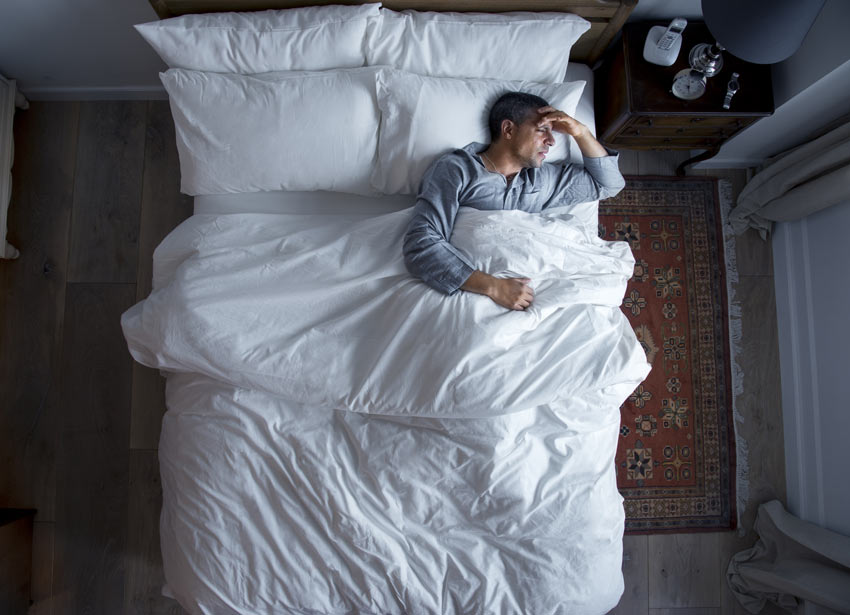Sleep Hygiene & Your Recovery
When was the last time you slept for longer than seven consecutive hours?
If you can’t remember, then this is the post for you. Most adults need anywhere from seven to nine hours of uninterrupted sleep. During that period of time, the body recharges. Scientists do not know exactly how this recharge happens, but they do know this: that sleep supports cognitive function; the ability to physically react and respond to stimuli; moods; the immune system; and our general feelings of well-being. If we don’t get that refresher each night, we slow down our reaction time, we sabotage our patience and willpower reserves, we undermine our immune functions, and, frankly, we feel like crap.
So what does sleep have to do with addiction recovery?
Quite a lot, actually.
Substances like drugs and alcohol not only create dependence, but they can also rob us of sleep.
Drugs and alcohol tamper with the four stages of sleep, so that even if it feels like they help you fall asleep, they prevent you from getting the full cycle of sleep you need.
Alcohol, for example, can cause sleepiness. However, going to sleep with alcohol in the system makes it difficult for the body to extract the full benefits of sleep because it’s so busy trying to counteract the more toxic effects that alcohol has on the organs. Someone suffering from alcohol use disorder regularly compromises their sleep; if that person enters recovery, they will likely be in a state of sleep deprivation from their time spent in active addiction.
Sobriety requires a day-to-day basis of conscious action and discipline. This takes energy, patience, and a sound psychological base to build upon. Poor sleep diminishes all of these resources. If we’re tired, we can’t put in the extra effort. If we don’t put in that extra work, we become frustrated. Increasing frustration can intensify cravings and deplete our resources for dealing with them.
Daily Life Tips
A healthy sobriety requires a commitment to getting good rest and getting it consistently. We offer below some tips for developing good sleep hygiene in your daily life.
1. Stick to a routine.
Structure is good. Routines don’t have to be boring, and going to bed every night at a similar time is an excellent first step in training your body to crave sleep at the same time every day. Tip: opt for a realistic time to hit the hay based on your schedule.
2. Keep cool–or toasty.
It can only benefit you to sleep at a comfortable temperature. For most people, that’s anywhere between 68 and 72 degrees. When possible, set your thermostat accordingly.
3. Count sheep, not nights of uncomfortable sleep.
You have every right to spoil yourself with bedding and a mattress that makes you feel comfortable and supported at night! If you can afford it, take the time to mattress shop to find the bed that works the best for you.
4. Dim the lights, please.
Our bodies are sensitive to light. It’s natural for us to feel alert in sunlight and drowsy in darkness. Do yourself a favor and sleep in the dark. Keep the bedroom as dark as possible with blinds and/or curtains and no nightlights.
5. Decrease that screen time.
Light that comes from your phone, tablet, or television counts as light, even if the rest of the room is dark. In addition to keeping the space bright, screens amp up the brain. It’s like confusing espresso for sleepytime tea.
6. Exercise during the morning or daytime hours.
It’s not always possible, but strive to work out with the sun. If your schedule won’t allow it, try to exercise at least four to five hours before settling down to sleep. Daily exercise during the day facilitates a sense of calm, comfort, and drowsiness when you’re ready to go to bed.
We Can Help Your Sleep Hygiene
Focusing on just one or two of these steps has the potential to change your sleep pattern and thus the extent to which you enjoy your journey through recovery. If you’re feeling exhausted by recovery or by a substance use habit, St. Gregory Recovery Center is here to help. We can help you start your recovery or reassess your recovery plan so that it works better for you. We’ll help you learn how to structure your daytime and nighttime in a way that supports your long-term well-being.











